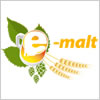
 China & South Korea: Chinese beer safe to drink, says S.Korean food safety authority
China & South Korea: Chinese beer safe to drink, says S.Korean food safety authority
South Korean food safety authority said on Tuesday, July 26, that Chinese beer is safe to drink as it found the formaldehyde content in Chinese beer is much lower than the standard set by the World Heath Organization (WHO), Xinhua News communicated.
The (South) Korea Food and Drug Administration (KFDA) said in a news release that the quantity of the formaldehyde detected in Chinese beer met the international guidelines.
Sample examination showed in the 13 brands of imported Chinese beer and four German beer sold in South Korea, the average content level of formaldehyde stood at 0.132 parts per million (ppm). The level of formaldehyde in the 19 brands of South Korea beer stands at 0.128 ppm on average, said the release.
The results of the examination showed both imported and domestically produced beer met the WHO's guideline of under 0.9 milligram (mg) formaldehyde per liter, it said, adding the traces of the substance may result from the natural brewing process.
The KFDA also said that in the future, imported beer with a formaldehyde content of less than 0.9 mg per liter will be allowed into the country without the need for further documentation, while those with levels between 0.9 mg and 2.0 mg will require manufacturers to submit documents testifying that the formaldehyde was not added as part of the manufacturing process.
Beer that contains formaldehyde higher than 2.0 mg per liter will be subject to an additional review process, the KFDA said.
The South Korean food safety agency decided to conduct examination over imported Chinese beer on July 11 after some Chinese media reported that Chinese beer contains high level of formaldehyde.
China's beer output nears 30 million tons a year, ranking first in the world over the past three years.
Înapoi
(libra 1.6719 sec.)





